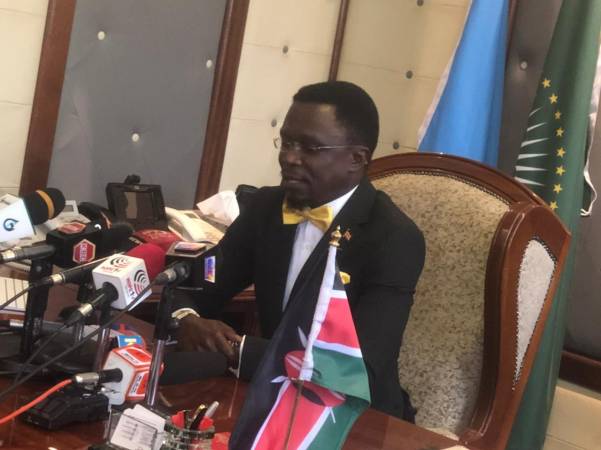Kenya to criminalise doping in athletics after string of cases
By BBC, December 9, 2022NAIROBI: Kenya’s sports minister intends to criminalise doping in athletics in an attempt to bring an end to a string of cases in the sport.
The east African country avoided a sanction by governing body World Athletics – despite having 55 athletes serving suspensions – last week after committing to spend $25m over the next five years to combat doping.
Sports minister Ababu Namwamba hopes to fast track amendments to legislation and crack down on doping the same way the government does with drugs.
“Right now, the Kenya Anti-Doping Act of 2016 is not, in my view, sufficiently loaded to deal with this challenge with the force required,” Namwamba told BBC Sport Africa.
“Our initial investigations are that you have a very complex underground syndicate [involved in doping in athletics].
It involves agents, coaches and doctors so it will need multiple instruments to be deployed to dismantle that syndicate.
“I believe we need to criminalise doping and elevate handling of doping substances to the same level [as] narcotics.
“So in the same way we deal with drug traffickers, we should deal similarly with those engaged in this practice.”
Kenya’s total of 55 athletes currently banned by the Athletics Integrity Unit (AIU) for a range of violations is the third most of any nationality behind Russia (102) and India (61).
A further eight Kenyans have been provisionally suspended and are awaiting the outcomes of their cases.
The World Anti-Doping Agency (Wada) does not believe doping should be made a criminal offence for athletes, with those sanctioned having a right of appeal to the Court of Arbitration for Sport.
Russia has been banned from competing as a nation in athletics since 2015 but World Athletics president Lord Coe told BBC Sport that Kenya was not going to face a similar fate, although the situation in the country was “very serious”.
“They weren’t going to be banned because unlike the Russian situation, which we’ve been dealing with for the last seven years, there is no obvious evidence that this is state-sponsored or state-secured,” Lord Coe said.
“The challenge in Kenya is difficult and chaotic.
More Articles

